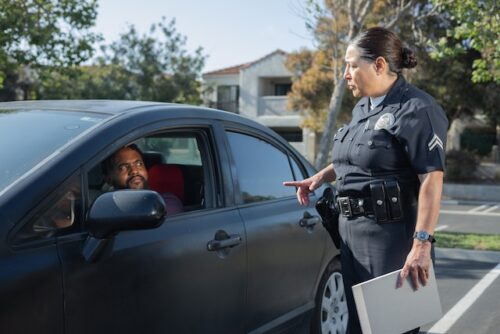
When stopped by a police officer in New Jersey and asked to take a chemical test, you must do so, unless you are prepared for the legal ramifications of refusal. These chemical tests could be blood, urine, or breath tests, with breathalyzers being a popular test, meant to determine if you are intoxicated with drugs or alcohol. If you use a public road, it is legally understood that you accepted the necessity of taking a chemical test upon a police officer’s request. The rules about field sobriety tests, as opposed to chemical tests, are rather different. Unlike chemical tests, field sobriety tests are tests of coordination and balance. Unfortunately, it is that same focus that can render them unreliable. Medical conditions and even weather conditions can affect your performance on a physical test regardless of whether you are or are not intoxicated. This blog post will give an overview of field sobriety tests. For personalized answers to specific DWI questions, don’t hesitate to reach out to a Bergen County DUI lawyer as soon as possible.
Why Are Field Sobriety Tests Used?
Chemical tests are meant to analyze the amount of a substance in your body. These can be unreliable insomuch as not everybody reacts to drugs or alcohol in the same way.
Similarly, field sobriety tests are meant to determine if you are drunk, but these accomplish that task through physical tests. These can be unreliable because, just as each body reacts differently to different substances, each person reacts differently to the stressors of being pulled over. There also exists a concern about police misconduct and misuse of tools like a field sobriety test.
The Three NHTSA-Approved Tests
To prevent such misconduct, the National Highway Traffic Safety Administration certified three tests reliable to produce accurate results about someone’s level of intoxication. These are:
- The horizontal gaze nystagmus test
- The one-leg stand test
- The walk-and-turn test
Each of these is intended to test the taker’s coordination and reflexes. The horizontal gaze nystagmus test asks you to follow an object with your eyes without moving your head, while the one-leg stand test asks you to keep one leg raised while counting. Lastly, the walk-and-turn test has you walking nine steps, touching the heel of one foot with the toe of another, then turning around, and walking another nine heel-to-toe steps.
What Will Happen if I Refuse to Take a Field Sobriety Test?
Refusing to take a field sobriety test is permissible and shouldn’t carry consequences. However, there are times when police officers may then tell you to take a chemical test. Since New Jersey law does punish the refusal of a chemical test with a fine and license suspension, you may still be required to take one kind of test. An experienced DUI attorney will help you understand how to deal with these situations and their consequences, particularly if you have been accused of a DUI.